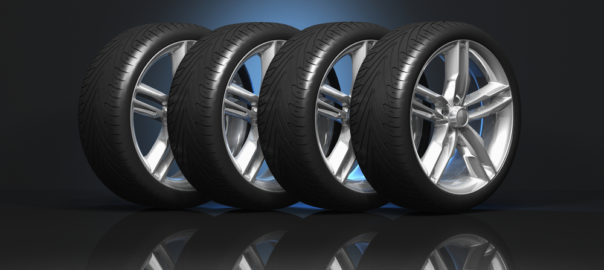Tire blowouts are some of the most common – and dangerous – car issues that lead to the need for roadside assistance and vehicle recovery service today. It’s possible – with advanced preparation – to avoid this potentially deadly mishap. In this blog entry, our Chicago towing service experts will detail some professional tips on how to avoid tire blowout.
Tire Inflation
Make sure your tires are properly inflated. Under inflated tires can wear out quickly, have limited wet weather traction, and strain your engine. Low pressure tires have sidewalls that flex increasingly, which wears out the interior rubber. You get increased gas mileage with properly inflated tires, saving you money. Check your owners manual for the recommended tire pressure. If you constantly have to add air to your tires, you might have a micropuncture or slow leak.
Tire Rotation
The front tires on front wheel drive cars wear out differently than the rear tires. Rotate the tires periodically to ensure they wear evenly, making them last much longer.
Tire Alignment
Make sure your wheels are aligned properly. If your wheels are at an improper angle, your tires will wear quicker, your fuel will be consumed faster, and your vehicle will pull to one side when driving or braking.
Tire Balancing
Make sure that all the weight of your tires and wheel assembly is balanced in order to prevent rapid tire wear and vibration when driving. Tire balancing is accomplished with a machine that spins the wheels and tires to isolate heavy areas, and allows you to add extra weight to correct uneven distribution. We recommend balancing your tires when purchasing new tires or wheels, as well as if your seat or steering wheel is vibrating.
Tire Inspection
Make sure to regularly inspect your tire treads to make sure they’re not worn down too much. Worn down tire treads will skid and slip when you brake or turn. Check tire treads by placing a penny in the middle of a dread so Lincoln’s head is upside down facing you. If you can see Lincoln’s whole head, you need to replace your tires. Other signs of tire stress include bubbling, cutting, or bulges in tire tread or sidewalls.
Never Mix Tires
Never mix and match tires, even when you’re concerned about budget.
Store Tires Properly
Always properly store tires that aren’t installed on your car away from direct sunlight or high temperatures. Tires need to be stored in areas that are dark, cool, and dry, and without the presence of any chemical fumes like gasoline.

